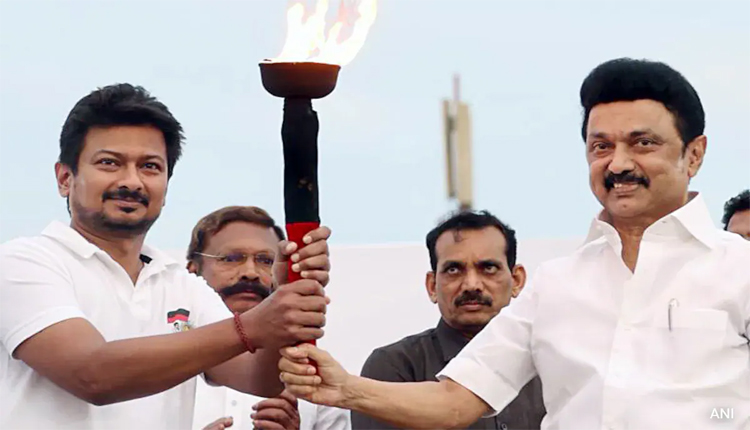Chennai: In a move that has surprised many, Tamil Nadu Chief Minister MK Stalin has elevated his son, Udhayanidhi Stalin, to the position of Deputy Chief Minister, just five years after he entered politics. The 46-year-old, who had previously served as the state’s Sports Minister, has rapidly ascended the political ladder, sparking discussions about dynastic politics and strategic timing.
Udhayanidhi, the only son of MK Stalin and the grandson of former Tamil Nadu Chief Minister Karunanidhi, has been in politics since 2019 when he was appointed Secretary of the DMK’s youth wing. In 2021, he became a Member of the Legislative Assembly (MLA) and subsequently joined his father’s cabinet in 2022. His promotion to Deputy Chief Minister has raised eyebrows due to his limited political experience compared to the years it took his father and grandfather to achieve similar roles.
MK Stalin’s own journey to power was more arduous. He contested six assembly elections before being appointed Deputy Chief Minister in 2009 at the age of 56, following considerable internal family tension and health concerns of his father, Karunanidhi. Udhayanidhi’s swift rise has led many to question why Stalin is hastily grooming his son for leadership, especially given Udhayanidhi’s relatively short political career.
Udhayanidhi’s aggressive campaigning in the recent Lok Sabha elections, where he coined the popular slogan “29 paise Modi” in criticism of Prime Minister Narendra Modi, may have contributed to his rapid promotion. His ability to connect with voters has likely played a role in Stalin’s decision, especially as Tamil superstar Vijay has entered politics with his Tamilga Vetri Kazhagam (TVK) party, presenting a new challenge for the DMK in the 2026 state elections.
The timing of Udhayanidhi’s promotion has also fuelled speculation. With the next assembly elections just 17-18 months away and Stalin now 71 years old, many believe this is Stalin’s way of securing his son’s political future while he still has full control over the party. There are concerns that once out of power, any successor, including Udhayanidhi, may face internal dissent or rebellion from other ambitious party members.
While the move to elevate Udhayanidhi may have strategic advantages, it has not been without criticism. The opposition has long accused the DMK of dynastic politics, and Stalin’s decision has given them more ammunition. Some argue that Stalin could have waited until Udhayanidhi gained more experience before promoting him to such a senior position.
In a party that prides itself on its ideological roots, the question remains whether Stalin truly had no other successor than his own son. For now, Udhayanidhi’s rise marks a significant moment in Tamil Nadu politics, with many watching closely to see how he handles the challenges ahead.



Comments are closed.